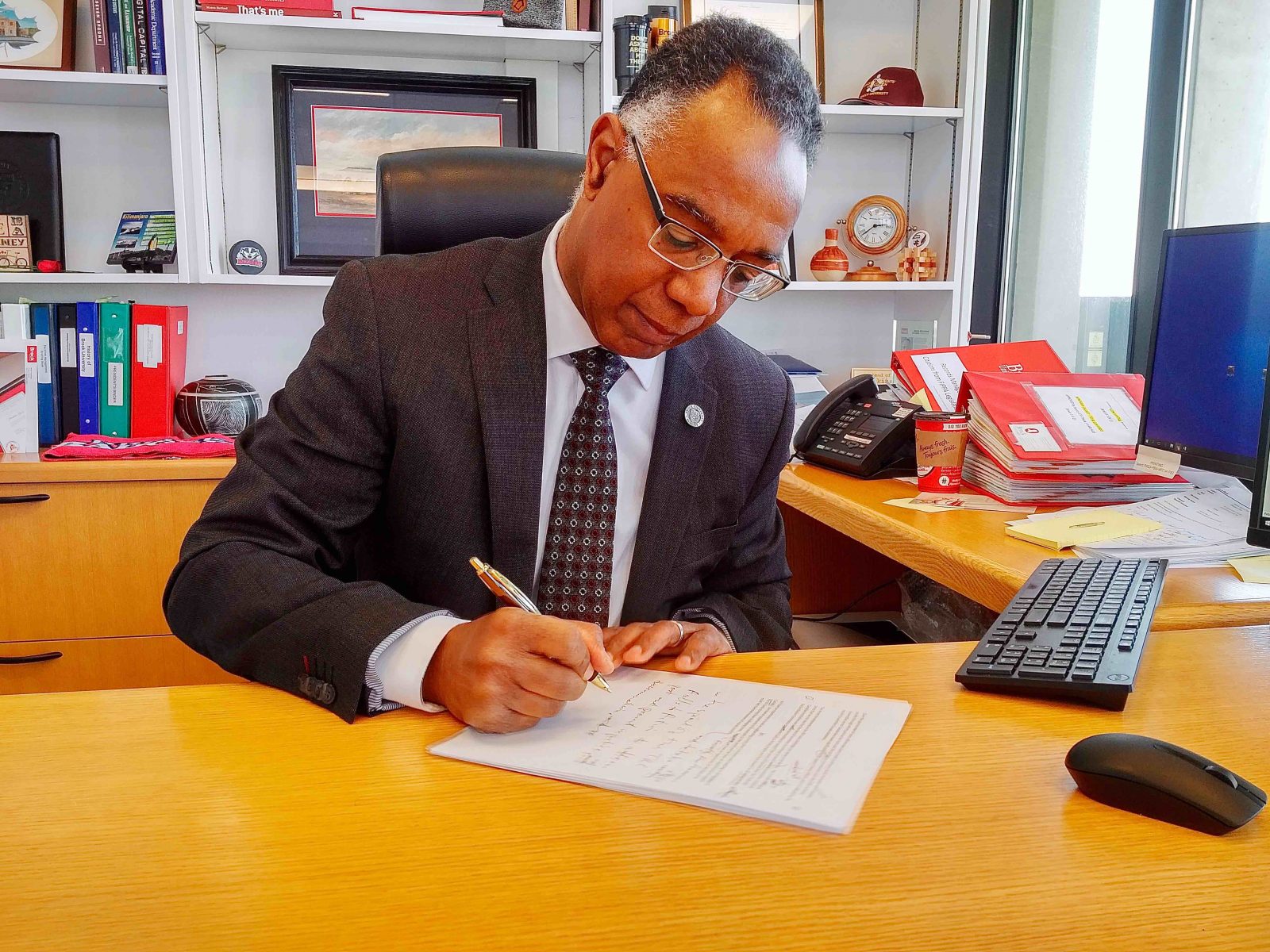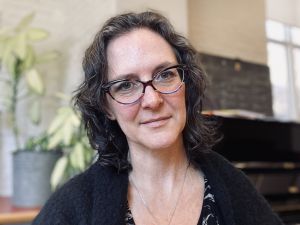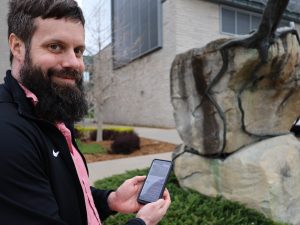 Brock President Gervan Fearon: “We have an opportunity to take real steps, in the spirit of the Truth and Reconciliation Commission, to address past and present injustices and discrimination, and to build a better future for everyone at Brock."
Brock President Gervan Fearon: “We have an opportunity to take real steps, in the spirit of the Truth and Reconciliation Commission, to address past and present injustices and discrimination, and to build a better future for everyone at Brock."This statement was issued on 23 Feb. 2018 by University President and Vice-Chancellor Gervan Fearon:
As President of Brock University, I want to emphasize our institution’s sympathy and support to the families of Tina Fontaine and Colten Boushie, and to Indigenous students, faculty, staff and Indigenous communities in the Niagara region and across Canada.
It is understandable that people have reacted with anguish and anger after not-guilty verdicts in the murder trials of the two young Indigenous Canadians.
Canadians have in recent years been made painfully aware of a history of harrowing treatment of Indigenous people. Shocked and haunted by that past, across the country many have longed for progress achieved through real reconciliation, and have watched with hope as processes were created with the intention of finding that goal. The journey is fraught with difficulty, and this month’s court cases will have left many Canadians feeling deprived of a sense of justice or moral accountability.
Tina Fontaine had become a tragic symbol for the National Inquiry into Murdered and Missing Indigenous Women and Girls, of whom more than a thousand have been slain or have disappeared. When the 15-year-old’s body was pulled from Winnipeg’s Red River in 2014, it had a particularly debilitating effect on communities across the country.
On March 8, when members of the Brock University community hold events on our campus to recognize International Women’s Day, I am certain that Tina Fontaine will be in our thoughts.
Colten Boushie, a 22-year-old Cree man, was shot and killed on a Saskatchewan farm in a 2016 incident that made international headlines. On February 9th, a jury acquitted farmer Gerald Stanley of a charge of second-degree murder in the case, a ruling which has had repercussions across Canada and beyond.
An Open Letter to Canada’s university presidents, from Indigenous faculty and allies at universities, criticizes the court’s decision as “a travesty of justice”, and calls on universities to take meaningful measures by:
- supporting Indigenous peoples during and beyond this time of deep pain, grief and rage;
- identifying systemic barriers and taking actions to enhance institutional accountability towards Indigenous peoples and communities;
- and supporting anti-oppressive education.
The Open Letter, as well as individuals who have spoken out publicly, say we must do more —as a university, and as a society.
A public statement from Universities Canada, the national organization that represents Brock and 95 other universities across Canada, has also committed to supporting Indigenous students and communities.
At Brock, we are taking action in relation to Universities Canada statement. Specifically, we are moving forward with recommendations — supported by the Aboriginal Education Council, Two-Row Council, the Tecumseh Centre as well as Indigenous students, staff and faculty — to establish a new Vice-Provost position dedicated to supporting Indigenous education and community engagement initiatives. These efforts will be informed by the measures stated in the Open Letter to university presidents.
At the societal level, the national debate stirred by the courtroom decisions is an opportunity for Canadians to embrace social inclusion and understanding by acknowledging and acting upon the shared national awareness further brought about by the Fontaine and Boushie tragedies.
For many of us, their deaths as well as the court rulings challenge our sense of progress. Indeed, we have an opportunity to take real steps, in the spirit of the Truth and Reconciliation Commission, to address past and present injustices and discrimination, and to build a better future for everyone at Brock.
The path towards trust and mutual respect requires meaningful action to address systemic barriers and establish institutional accountability, including a commitment to work with Indigenous scholars, students, faculty, staff and communities to assist in the Indigenization of curriculum, policies and practices to earn the trust and respect of Indigenous communities.
On campuses and across communities, we must all make meaningful efforts to make Canada more inclusive and just. The Open Letter to university presidents asks us all to do our part; we must be clear in our resolve and meaningful in our action.
In partnership and working with Indigenous students, faculty, staff and communities, we have an opportunity to address the challenges with candor, and make measurable and true progress at universities and across society.









